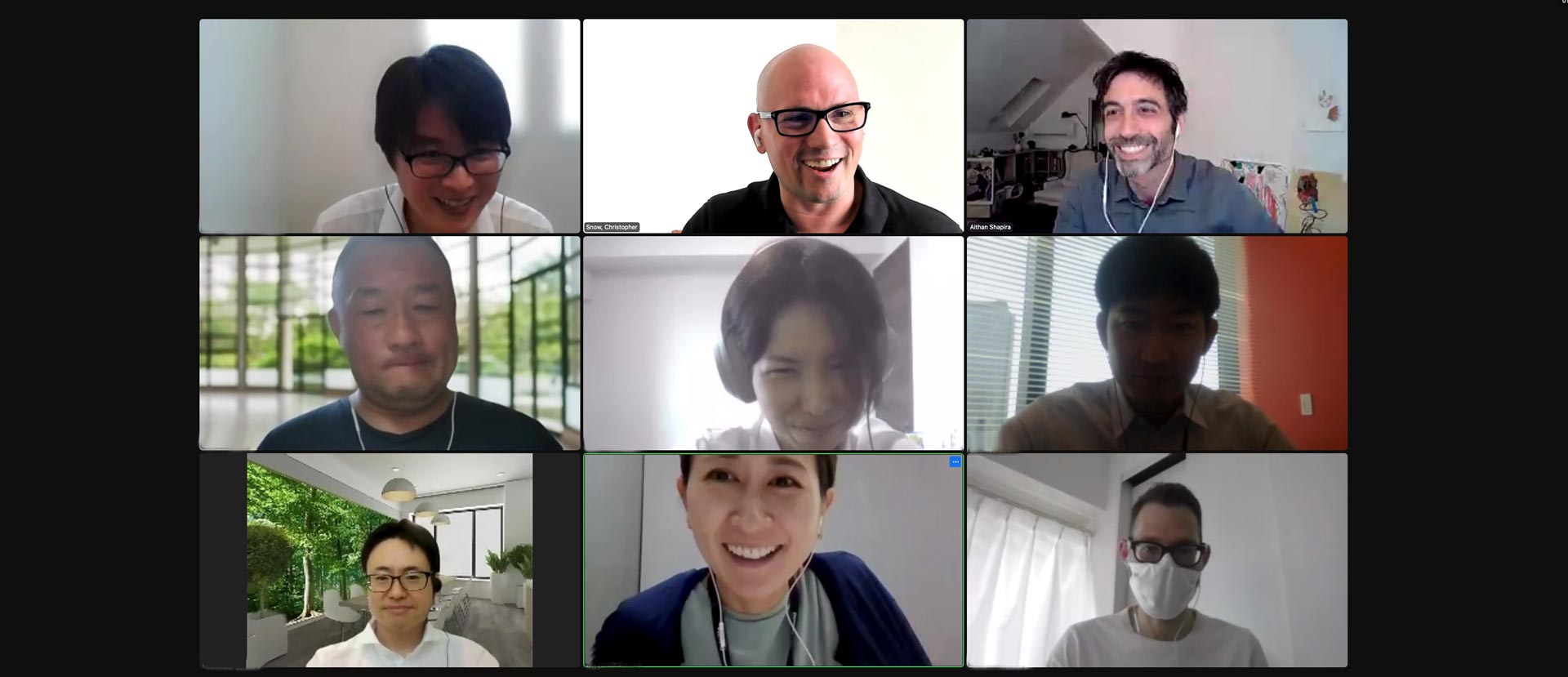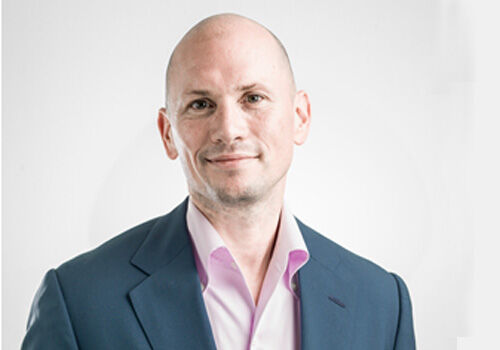Chris Snow is not your typical Executive Education participant. Currently a Business Process Solutions Partner at Deloitte in Japan, you could argue nothing about his professional and educational trajectory is typical.
“By definition, MIT Executive Education was my first formal post-high school experience, so it was meaningful and exciting for a number of reasons.” While most people were enrolling in undergraduate studies immediately after high school, Chris embarked on a different adventure. He started with various entry level operational roles, eventually moving into tech support, and finally settling into a path that would evolve into his present-day career. While interviewing for his current role at Deloitte, he took his first Executive Education course.
Chris would be facing a lot of new challenges in his new role. Not only would he be responsible for managing a much larger team of direct reports, he would also be navigating the cultural nuances of a Japanese firm. “Maybe in the back of my mind I was thinking ‘I better level up what I know and prepare for this.’” And with one course (as is often the case), he was hooked.
Ready, set… GO!
When Chris registered for his first course in April 2021, he wasn’t planning on pursuing the Advanced Certificate for Executives (ACE), but by December 2022 he had completed the rigorous curriculum within an ambitious timeline. “The first course I took was Business Process Design for Strategic Management and by the end of the first week I knew the course had paid for itself. I could use lessons right away and bring frameworks back to my team. So, by the end of the course, I thought ‘let’s just do the whole thing.’ If I’m going to learn that much after a few weeks, what happens if I multiply it over twelve months.”
He had experimented with other executive education offerings out there, but ultimately chose MIT because it aligned the best with his vision and values. “MIT really seems to walk the walk with their mens et manus mission statement and its focus on creating principled leaders. From a purpose perspective, it made it a comfortable and straightforward choice. Plus, I don’t have to contemplate ‘Is this cutting-edge material? Am I getting the best education?’ It’s MIT, so that’s just a no-brainer.”
With his new role, he focused first on earning his Executive Certificate in Management and Leadership as part of the ACE. Chris is the first to admit that, being from New York, he’s a very direct communicator and it’s a style that served him well for many years. However, in Japan, this method wasn’t quite clicking with his team.
“I enrolled in Inquiry-Driven Leadership because I thought maybe I wasn’t asking enough questions – or perhaps the right questions – and this would help build my emotional intelligence and self-awareness.” The focus of this course, led by Hal Gregersen, is to ask questions in order to arrive at answers. “Business culture in Japan is very focused on listening, but less focused on engagement. There’s less to-and-fro. So, asking lots of questions is a great way to get 45 seconds of silence!” Anyone who has participated in these “question burst” exercises will admit it can be a bit awkward at first. “There really has to be a degree of psychological safety within the team so they understand this isn’t a trick. You’re asking questions because you’re actually interested in their answers. It can take a while to establish that level of trust. But if you really do the work, it results in some deep introspection for you and your team.”
Yup, there’s a course for that…
As Chris built out his curriculum, he soon realized how personalized and relevant he could make his learning journey. “I would approach the menu of courses available thinking ‘What am I struggling with right now?’ and there was a course for that! It just became a very organic way to take on the curriculum.”
His course assignments frequently involved challenges he was experiencing at work and his team would often serve as inspiration. After each module of the self-paced online courses, he would test out the lessons and frameworks via one-on-ones with members of his team and then progressively roll them out to the department at large. “The more courses I took, the more tools I had in my toolbox and that has been invaluable. There’s no way to put a price tag on it.”
They are currently practicing the 4-CAPS+ leadership framework from Deborah Ancona’s Leadership in an Exponentially Changing World, Dynamic Work Design from Nelson Repenning’s Business Process Design, and Catalytic Questioning from Hal Gregersen’s Inquiry Driven Leadership to name a few. After an inspiring session of Unlocking the Power of Perspectives: Problem Solving with Clarity, Creativity, and Collaboration with Aithan Shapira, Chris actually arranged for Aithan to do a 360 with his entire team.
 Aithan Shapira meets virtually with Chris' team
Aithan Shapira meets virtually with Chris' team
“They loved it. The exercise helped us measure our reactive and creative traits as individuals and as a team. This tool has been particularly helpful for our cross-cultural understanding and promoting psychological safety within our team. Our team is primarily Japanese, but we've hired three members from different nationalities since I joined. Each member of our team brings unique life experiences that we're eager to explore. Aithan gifted us this powerful tool that sparked impactful conversations among us, ultimately improving our collective intelligence.
Sharing the wealth of knowledge
For Chris, a large appeal of obtaining the ACE has been the ability to share lessons with his team and help them develop their own skillsets. He believes if you’re not including others in your journey, you’re missing a valuable opportunity to build a resilient, united, and innovative culture.
“My purpose in all this is to learn more and then find a way to connect with people where they are and build a bridge across the chasm together. I’m inviting them to be part of the exercises and doing a lot of hands-on coaching with them” They’re currently goal-setting for 2023, discussing the areas of growth and reflecting on how far they’ve come – and how much further they can go. Building that psychological safety has been a process, but “they’ve done an exceptional job despite never having worked with someone like me before.”
“I could use lessons right away and bring frameworks back to my team... If I’m going to learn that much after a few weeks, what happens if I multiply it over twelve months.”

Chris suspects that as employment engagement surveys come in, they’ll reflect positive change and make the case for increased professional development opportunities across his department. He actually self-funded his ACE– another atypical aspect of his journey. However, he hopes to create more accessible opportunities for his team. His personal mission is to reconnect professionals with lifelong learning. If they open up the learning opportunities, it could also help differentiate the organization from competitors and help clients in ways they didn’t think they could be helped. It’s a win for everyone.
Making it all click
When Chris took Mastering Design Thinking and Systematic Innovation of Products, Processes, and Services towards the end his ACE journey (both led by thought leader Steven Eppinger), a lot of the frameworks snapped into place. "The magic of MIT's systems thinking approach came together when I was exposed to Design Thinking and Agile frameworks. Coincidentally, Systematic Innovation of Products, Processes, and Services was my only course on campus. I flew back to Japan with a deeper understanding of how Agile could pull everything I've learned together and how Design Thinking would help my team build our platform for the people that matter most: our customers.” The added beauty of these frameworks is that they’re not constrained to any particular culture, organization or industry. It’s an inclusive approach that’s particularly viable within the international business setting Chris and his team inhabit. “In my experience, Japan has a more practical business culture than the U.S. My team has utilized these frameworks to ship new services to our customers more frequently, creating valuable customer interactions and feedback. By extension, our services are more inclusive, and I'm enthusiastic to learn how this impacts customer engagement over time."
A continuous work in progress
Chris will admit that there is a temptation to come back to your teams with a desire to implement everything you’ve learned immediately. As someone with a very driven “let’s go” personality, it’s important to realize things can’t and won’t change overnight. That’s normal.
“It can really feel like you take two steps forward and one step back. It feels like you’re behind your starting point sometimes. As leaders we have to be completely consistent and persistent.” He recalls past experiences with other leadership who would frustratingly repeat the same messaging over and over again. “You then realize the reason for that. Sure, you might have been the first cohort of people that ‘get it’ – but there are second and third groups that need to be brought into the fold.”
Chris’ final two courses were Data-Driven Teams: The Art and Science of Winning and Building Game-Changing Organizations: Aligning Purpose, Performance, and People, which serendipitously addressed roadblocks he was facing with his team. These courses, focused on organizational design, really helped him understand that the frustrations he was experiencing were normal. “They made me realize ‘it’s not just you, this is really hard.’ You need your team, a system, and a culture all in alignment. And that takes a lot of work.”
The answer isn’t to roll it all out at once. “It’s all situational with my team. I’ve used things tactically to level up my team members. We’ve got to a place where almost all have really bought into vision and see the merit of these frameworks.” He’s managed to communicate not just the lessons learned, but why it should personally matter to them. “They hadn’t received attention to learning and development previously.” While there’s been a bit of an adjustment as they undo prior habits, it’s overall been a positive evolution. “They’ve been really courageous with sharing their own desires, reasons, and needs.”
Just getting started
The journey is far from over for Chris. He’s currently re-learning algebra, geometry, and trigonometry (subjects he hasn’t touched in over twenty-six years) so he can start a micro-Masters in Data Science through MITedx.
He encourages others to be fearless with their own learning journeys and wishes he had taken the plunge ten years ago. “I was probably really insecure 1.5 years ago. And I still have insecurities, but they’re not the same ones. Now I know if I’m stuck, I can find a course that will help me. If you know you’re onto something but you don’t know how to get there, just take a course! See what happens. Find the course that resonates with you the most and see what happens. That’s my advice to anyone.”
Learn more about earning an Executive Certificate or ACE here.
Contributed by Elaine Santoyo Goldman








